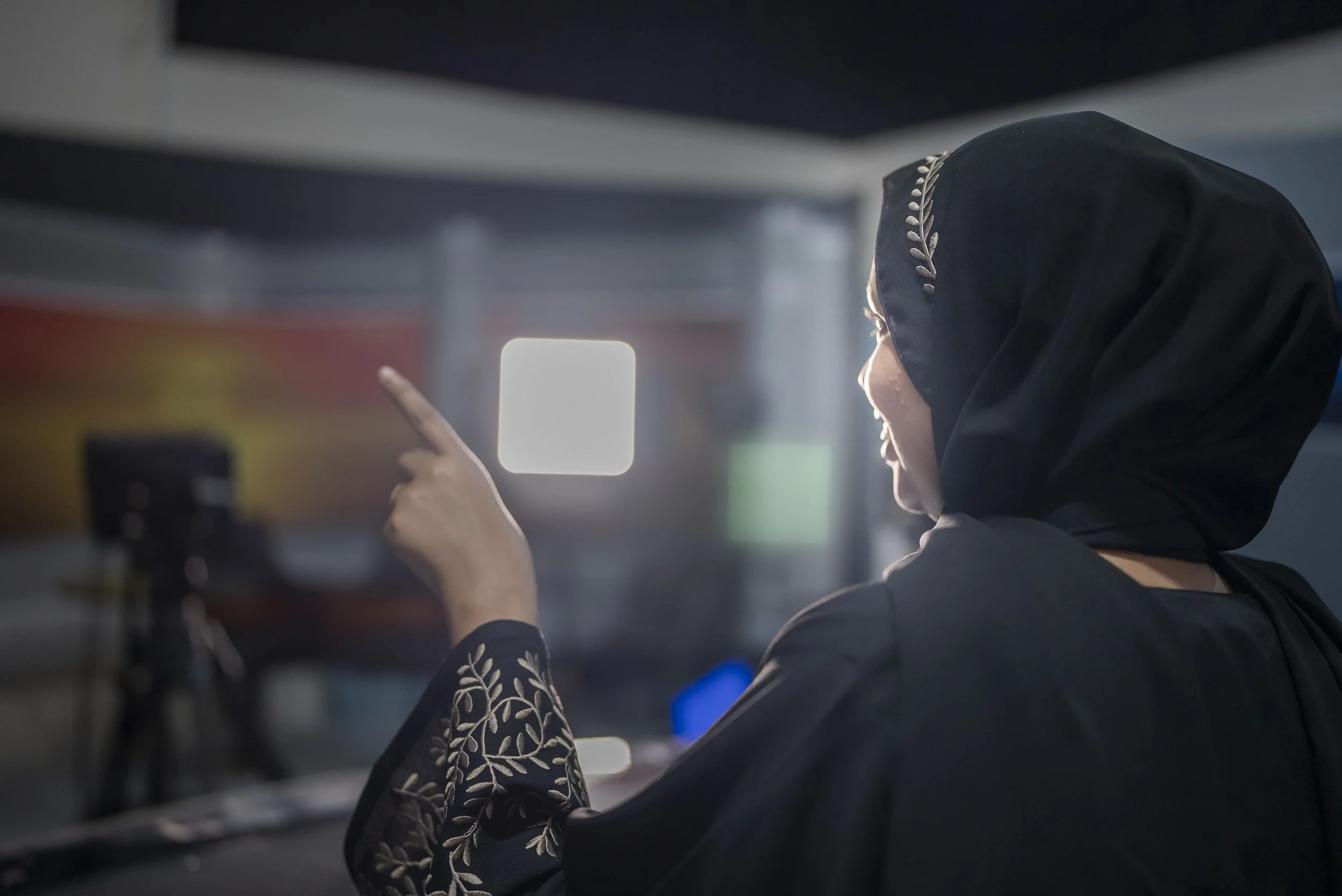Fathi Mohamed Ahmed, Chief Editor
It was Fathi’s grandmother who introduced her to the world of journalism. As a child, she would sit with her every day and listen to the BBC on the radio.
“I decided to be a journalist when I was very young,” says Fathi. “I told my parents I was going to computer classes in the afternoon after school but that was not true. I was studying journalism at a college in Mogadishu.”
Fathi hid what she was doing from her family because many Somalis believe journalism is an unacceptable career for women.
“After eight months, my father discovered I was studying media. He told me to stop, saying it would destroy my future and bring shame on the family. Our community believes women who work in the media are not good people.”
Fathi told her father journalism was her calling and she could not stop. Eventually he relented.
By the age of 21 she was Head of the Production Department at Goobjoog Media.
Now her family is proud of her.
Much of Somali media is dominated by coverage of politics and conflict. Fathi wants to change all that by focusing on social issues, especially taboo subjects like post-partum depression, female drug addiction and HIV/ AIDS. She also wants to tell the stories of people who have triumphed over adversity.
Bilan has given her the platform to do it.
“As an all-women media house we are bringing hidden subjects into the open in a responsible and sensitive way. Our sisters, mothers and grandmothers talk to us about issues they never dare speak about with men,” she says.
“If there was no Bilan, this kind of journalism would not exist in Somalia.”
Like many other Somali journalists, Fathi faces daily risks, both in terms of harassment and threats and in terms of physical danger.
When she was working on a report about rape in IDP camps the government ordered her to stop. The director of the media house she was working for also told her to abandon the story. “I felt awful,” she said.
On 14 October 2017, Fathi was in a restaurant at Zoobe Junction in Mogadishu. A massive truck bomb exploded killing about 600 people. One of the dead was Fathi’s colleague who was with her at the time.
As a married mother of three children, Fathi has faced further challenges.
“Most female journalists in Somalia stop working when they get married,” she says. “I didn’t want to do that because I love my profession and I like earning my own money. I am lucky because my husband fully supports me. I am setting an example for other women journalists by showing them you don’t have to stop working when you get married.”
“Being pregnant was another problem. People would shout at me when they saw me going to work. They said I must go home and stay there.”
Fathi says one of the best things about Bilan is that it provides space. Space for journalists to tell previously untold stories, space for them to think freely and a safe physical space where they can do their work free from harassment.
